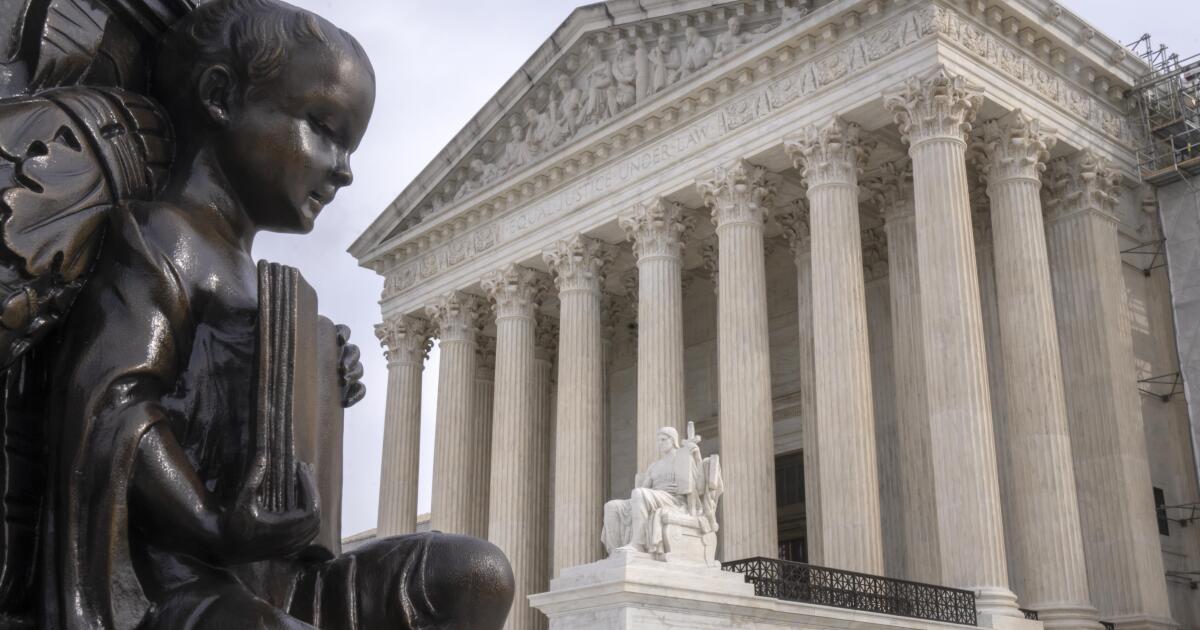THE POWELL ANNOUNCEMENT : General’s O.C. Kin Support Decision : Reaction: Sister and niece concede stress had been building. Opinions among Nixon Library crowd are sharply divided.
Lisa Berns, the niece of retired Gen. Colin L. Powell, passed by a newsstand in Los Angeles over the weekend and found herself reacting with dread and alarm to the news that Israeli Prime Minister Yitzhak Rabin had just been assassinated.
The Orange County woman’s reaction surfaced again Wednesday, when her uncle announced he would not be running for President, a decision that, in Berns’ words, “hasn’t ruined my day. . . . It takes a lot of the pressure off of us. It takes the worry away.”
“People in public office just put themselves at risk every day, so I’m not unhappy that he decided not to run,” she said.
Lisa Berns’ mother, Marilyn Berns, whose only sibling is Powell, said she had never discussed the dangers of running for office with her brother, “But I know that it concerned us–my husband and our family. I think Colin’s decision was made prior” to Saturday’s tragedy in Israel.
“I wasn’t surprised [by Wednesday’s announcement] because Colin called me [Tuesday] night and told me what his decision was,” said Marilyn Berns, 64, a teacher at Martin Elementary School in Santa Ana until her retirement in June. “I’m pleased about the decision. It’s important to us that he do the thing he feels most comfortable with. . . . We were all getting very edgy about it.”
Berns said that her brother’s consideration of seeking the presidency had left his family subject to prolonged stress.
“There was this monumental decision that had to be made,” Marilyn Berns said. “Both of them [Powell and his wife, Alma], along with their kids, were just meeting and meeting and thinking it over. I didn’t realize until I spoke to him the gravity of what my brother was dealing with. That was very disturbing to me. I got a little teary over that.”
Elsewhere in Orange County, the response was less personal and more political as Democratic and Republican leaders found a common ground: Albeit for their own reasons, both parties agreed that Powell had done the right thing–the only thing he could do, really–in not seeking the White House.
But private citizens throughout the county reacted glumly, saying that Powell’s decision deprived American voters of a candidate whom many felt was potentially the best President of anyone in public life.
Others expressed relief, however, saying the timing just didn’t feel right.
Numerous political pundits said Wednesday that Powell’s wife had been “adamant” about having him decline, language with which both Berns women took issue.
Marilyn Berns said that her sister-in-law “has a lot of input” into her husband’s choices and that “they do things together as a team”–to a point.
Even if Alma Powell had strongly resisted her husband’s running, “she’s not the type of woman who is so forceful that she would ram her views down someone’s throat. That’s not Alma Powell’s style. She gives her input, and that’s it. She doesn’t beat a dead horse.”
“I haven’t talked to my aunt [Alma, Powell’s wife]. I don’t know that she’s adamant about him not running,” said Lisa Berns, a computer saleswoman in Orange County, “but I don’t think she’s got a burning desire for him to run.
“I don’t know what she feels precisely about Rabin’s assassination. I don’t know that it played a big part in their decision, but I will tell you this: I was in L.A. over the weekend visiting friends. I hadn’t been watching the news, or reading the newspaper.
“But at 5 o’clock when I walked by a newsstand and saw that Rabin had been assassinated, my heart sank. I don’t know if anybody else in the family had it cross their minds, but it certainly crossed mine.”
The Berns family is so concerned about its own privacy that both mother and daughter asked not to have published the name of the Orange County community where the family lives.
Despite her uncle’s decision, “I think he would have been great” as President, Lisa Berns said. “I think he would be good at anything he sets out to do. He’s obviously very bright, very well spoken, level-headed, cool. . . . He knows how to work under tremendous pressure in various capacities. He’s a fair person, an eminently decent person.”
On other fronts, Democrats and Republicans across the county were not about to try to persuade Powell to change his mind.
“If he had run, it would have made the Republican [presidential] race even uglier than it is already,” by pitting the moderate Powell against GOP conservatives, said Irvine attorney Jim Toledano, chairman of the Democratic Party in Orange County.
“The announcement comes as no surprise to me,” countered Thomas A. Fuentes, chairman of the Republican Party in Orange County. “I never met a party activist who was favorable to [Powell’s] nomination during all the time the press was touting it.”
It was always the media and never the GOP constituency who wanted Powell to run, Fuentes said, claiming the negative feeling was far more prevalent in the ultraconservative, Republican stronghold of Orange County.
“If there were ever a media-contrived candidacy, this was the best example,” Fuentes said. “To carry our banner requires some time of service to the party and also the full embrace of the values and ideals of the party–and that was lacking.”
Fuentes suggested that party regulars felt the would-be candidate had not yet paid his dues, noting that Powell’s most trusted advisers “obviously shared with him the reality that there was no Powell ground network. There has to be some structure, some network, some reality to a campaign. That not being in place, I think he just came to grips with reality.”
But some people reacted to Wednesday’s news with disappointment.
At the Richard Nixon Library & Birthplace in Yorba Linda, about 150 people watched Powell’s announcement on a big-screen television. Many were both surprised and crestfallen at his decision. “I really thought he had the impetus and the appeal to win,” said 54-year-old Beverly Nocas of Pasadena. “He’s very articulate and I think he could have done a lot for us.”
Norma Canova, a 50-year-old resident of Yorba Linda, said, “I think he could have had a great role in healing racial problems in this country.”
But several onlookers, who had gathered to watch a fashion show called “Dressing the First Lady,” expressed relief.
“I couldn’t vote for him because I don’t know what he stands for,” said 81-year-old Henry Boney of San Diego. “I know that he’s a good salesman though. He created a lot of publicity for his book.”
Newport Beach resident Elaine Parks said she was “very impressed” with Powell, but was heartened by his decision to stay out of the race.
“It would have been divisive to the party, and we need complete unity to beat the current President, which I sincerely hope happens,” Parks said.


